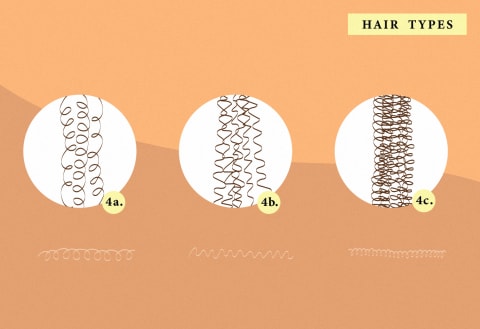
Our editors have independently chosen the products listed on this page. If you purchase something mentioned in this article, we may earn a small commission.
October 17, 2022 — 10:32 AM
Hairstylists everywhere get this question day in and day out: How often should you wash your hair? We’ve talked about this before, and, well, the answer varies. At the end of the day, it’s up to your hair type and lifestyle. Some people can shampoo their hair every day with no problems, while others can go a week or two between wash days.
All that to say: The conversation around a good cleanse can get quite nuanced, but do the same rules apply to conditioner? We consulted the pros to find out.
How often should you condition your hair?
The not-so-surprising answer: “I would recommend always shampooing and conditioning the hair together,” LA-based stylist Andrea Jaclyn, founder of Bomane Salon, tells mbg. Shampoo is great for cleansing the strands and the scalp, but it will likely leave your hair a bit thirsty for moisture. Just like you wouldn’t wash your face without following up with moisturizer, you’ll want to feed your strands with nutrients post-cleanse.
If you rinse your hair with just water, you may be fine to skip the conditioner, but always reach for hydrating leave-in products if your strands feel dry post-rinse. So the quick and simple answer: You should condition your hair every time you shampoo.
If you have really dry hair, you may even want to fold in a conditioner-only wash (aptly called a “co-wash“). “Co-washing—or, conditioner washing—allows the gentler cleansing without the drying detergents that can harm the scalp and hair. Also, co-washing protects the integrity and strength of the hair while maintaining its natural oils,” hairstylist Miko Branch, founder of natural hair care brand Miss Jessie’s, previously told mbg.
How you choose to condition is a whole other matter, and it’s a bit more nuanced. In addition, some conditioners may be better suited for certain hair types.
Signs you’re under or over-conditioning.
Over-conditioning can mean two things: Either you’re using too much conditioner or you’re not rinsing out the product thoroughly enough. “Ensure you rinse products out for a good period of time in the shower to ensure there is no buildup causing this feeling,” Jaclyn notes.
“You may also be using a conditioner that is not right for your hair type,” she says, “Or putting it too close to the roots.” Especially if you have finer strands, you’ll want to apply your conditioner from the ears down, not on the scalp.
Signs you’re over-conditioning:
- Hair feels oily right after you wash
- Your hair looks weighed down
- Your strands won’t hold a style
- Difficulty using hot tools
- Slimy texture or residue
- Your curls lack bounce
beauty & gut collagen+
A powerful daily ritual for glowing skin and strong hair & nails*

Under-conditioning could mean you’re not using enough conditioner or you’re using the wrong product for your hair. “If your hairstyle feels dry after washing and conditioning, you may be using a conditioner that is too light for your hair,” Jaclyn says. She notes that lightweight conditioners are best suited for those with thinner hair or those concerned about oily strands, while anyone with dry or brittle hair will benefit from a heavier conditioner.
It’s important to note that the telltale signs of under-conditioning are fairly similar to those of heat-damaged hair and strands in need of a good trim—so be sure to weigh all of the causes before blaming your conditioning routine outright.
Signs you’re under-conditioning:
- Your strands feel dry
- Hair breaks off more frequently
- You find tangles throughout your hair post-wash
- Hair feels dry even after a deep-conditioning treatment
- Frizzy ends
“Hair masks are a great option to use for extra-intense nourishment of the hair,” Jaclyn says. (We’ll put deep conditioners into this category as well.) “The molecules of masks differ from conditioner so that they penetrate the hair more, thus providing greater hydration,” she explains. As hair consultant and trichologist Sarah Roberts, author of You and Your Hair: The Ultimate Healthy Hair Masterclass for Afro Textured Hair, previously wrote: “Think of deep conditioners as a five-star meal for your hair.”
So, where do hair masks and deep conditioners fit into the equation? Well, that also depends on how often you wash your hair and what your goals are. “I love to use a mask once a week for an extra boost of nourishment,” Jaclyn says.
If you have thin or oily hair, you can still use a hair mask. Just be sure to use a bit less than you do conditioner and use it as your conditioner rather than on top of it.
If you wash your hair less often, say twice a week, then you may opt for a biweekly hair mask schedule. All in all, the choice is yours—just be sure to listen to your hair, and don’t be afraid to switch up your schedule if your strands begin to feel too oily or too dry.
Shop these conditioners:


Ceremonia
Ceremonia Acondicionador de Cupuaçu & Castor Deep Moisture Conditioner
Ceremonia Acondicionador de Cupuaçu & Castor Deep Moisture Conditioner

Davines
Momo Conditioner







